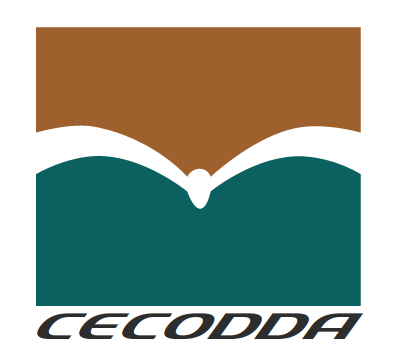GSA and ARSO: Capacity building for export competitiveness of women-led SMEs and standards promotion in cosmetology sector in Africa
Posted on: December 02, 2019

The programme “Capacity building for export competitiveness of women-led SMEs and standards promotion in cosmetology sector in Africa – GSA and ARSO” aimed at providing technical support to the Global Shea Alliance (GSA) and to the African Organisation for Standardisation (ARSO) to support women-led small cosmetics producers in West Africa, and to promote harmonized standards to mainstream cosmetology into the formal sector in Africa. As flagship activities of the programme, a Regional Training and Validation Workshop on increased Export Quality and Competitiveness in the Shea-based Cosmetics Sector in Africa was held in Accra on 30 October 2019 and a Regional Harmonization and Validation Workshop was held in Nairobi, Kenya from November 26 to 29, 2019.
Regional training and validation workshop on increasing Export Quality and Competitiveness in the Shea-based cosmetics sector in Africa
About 30 participants from Togo, Benin, Nigeria, Cote d’Ivoire, Burkina Faso and Ghana attended the workshop.
The workshop provided the platform to validate the technical and simplified manuals on “Quality management for export and competitiveness in the cosmetics sector”, and “Export Management and Documentation Requirements? Conformity and Compliance Requirements for Shea Cosmetics Exports”, which were developed as part of project implementation.
These manuals provide practical and simplified information on enhancing quality for export, requirements for packaging and labelling as well as how to obtain international certification for selected markets for shea-based cosmetic products, mainly in the European Union market.
Addressing participants at the opening of the workshop, Riccardo Tintis, TCII Programme Manager, outlined components of the project support on Export Management and Documentation Requirements? ensuring Conformity and Compliance Requirements for Shea Cosmetics Exports, focusing on women-owned small cosmetics; the production of a manual on Quality Management for export and competitiveness in the cosmetics sector with a special focus on shea-cosmetics.
Speaking at the ceremony, Aaron Adu, Managing Director of GSA, said GSA was committed to working together with all shea value chain stakeholders to promote the growth of the industry in Africa and around the world. Additionally, GSA was committed to supporting governments with information and technical assistance in designing strategies to maximize the value added and jobs created by the shea industry. To conclude, the Managing Director of the GSA thanked the TradeCom II Programme for the support provided in putting together the export manuals and hoped that the manuals will help improve export potential for shea cosmetics.
The workshop was structured in 4 sessions:
- Quality Management and Best Practices in Cosmetics Sector including Packaging & Labelling, Consumer Marketing and standards for cosmetology;
- Export Management and Documentation Requirements, tapping into Export corridors for Regional and International markets as well as Governments assistance in the cosmetics sector in West Africa;
- Consumer Marketing and Customer Retention; and
- Validation of the Quality Management Manual, Export Management and Documentation Study Report, and Publicity Materials.
During and after the workshop, the participants praised the quality of the presentations delivered and the manuals presented. The presentations provoked a flow of discussions and comments from participants, which made the workshop day very lively and full of productive discussions.
Regional Harmonization and Validation Workshop held in Nairobi, Kenya from November 26 to 29, 2019
About 30 participants from 12 African countries met at the Hilton Hotel Nairobi, Kenya from November 26 to 29, 2019 to harmonize and validate standards in the cosmetology sector for the first time. They discussed conformity assessments procedures recommended for harmonization in order to support the cosmetology and wellness sector in Africa. In addition, the workshop explored ways of enhancing awareness creation on the benefits of standards in the cosmetology and wellness sector in relations to trade requirements. The workshop further discussed safety, health and trade concerns related to cosmetology and wellness.
Addressing participants at the opening of the workshop, Peter Namutala Wanyoyi, Principal Standards Officer of Kenya Bureau of Standards (KEBS) highlighted the importance of standards in the economy, especially in cosmetics, cosmetology and the wellness sector.
He emphasized the role Standards play in trade facilitation and market access of goods and services by providing practical solutions to problems within the Industry and highlighted the fact that the Cosmetics industry is an important source of income and employment in the African region. He also brought to the attention of the delegates the critical role standards harmonization plays in Africa as a whole with Cosmetics being one of the most important commodities in the region and in the global economy.
Ahmed Ndyeshobola, Team Leader of Tradecom II Programme, briefly presented the outputs of the ARSO component of the support programme which included: a diagnostic study on health and cosmetic trade issues; an assessment of cosmetology standards; harmonization issues of these standards and the related conformity procedures; marketing of these outputs to key stakeholders and the validation process of these outputs. He highlighted that he was eager for the discussions ahead and planned to consult the participants with the intention of getting views on the implementation of the programme as well as reflection on the possibilities for sustaining these outputs going forward.
The workshop was structured in 5 technical sessions:
- Diagnostic study on health and trade issues related to the cosmetics industry;
- Assessment of African standards related to cosmetology and wellness: Divergences and gap analysis;
- Harmonizing standards and conformity assessment procedures in the African cosmetics industry;
- Presentation & Discussion of Publicity and Awareness Materials for the Cosmetology Industry;
Finalization of consensus on proposed harmonizes standards and conformity assessment procedures for cosmetology and wellness.




